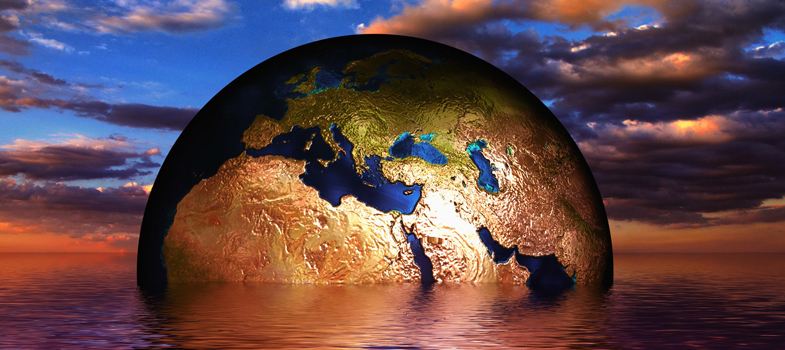2.4 What are the main greenhouse gases?
We've already mentioned that CO2 is a greenhouse gas. There are several others; some are natural and some are man-made. All of them have different global warming potentials, and these are expressed in comparison with CO2. So, for example, a given amount of methane has 21 times the global warming potential of the same amount of CO2. The most important greenhouse gases (as a result of a combination of volume and global warming potential) are CO2, methane and nitrous oxide. There are several other greenhouse gases, some with very high global warming potentials – but they are present in very small amounts. Over two-thirds of the enhanced greenhouse effect is attributed to CO2.
The role of water in the atmosphere is complicated. As water vapour it acts as a greenhouse gas (so has a warming effect) but as certain cloud types it increases the Earth's albedo so has a cooling effect. The amount of water in the atmosphere depends on temperature: a warmer atmosphere holds more water. This leads to a positive feedback: increasing CO2 enhances the greenhouse effect, resulting in a warmer atmosphere which is able to hold more water vapour, which further enhances the greenhouse effect. Although there is a lot of water vapour in the atmosphere overall, this varies in different parts of the globe (more in the tropics, less in the desert latitudes and poles) it tends to be removed within a few days (e.g. precipitation, uptake by vegetation). So, for the enhanced greenhouse effect, water vapour is not as important as CO2 and other greenhouse gases.
These web-based resources provide additional information
The New Scientist compares the relative importance of water and CO2 and the enhanced greenhouse effect.
The Carbon Dioxide Information Analysis Center gives details and concentrations of all greenhouse gases.
RealClimate discusses the role of water vapour in global warming.
RealClimate also looks at ‘The CO2 problem in 6 easy steps’.
2.3 What is the greenhouse gas effect?
